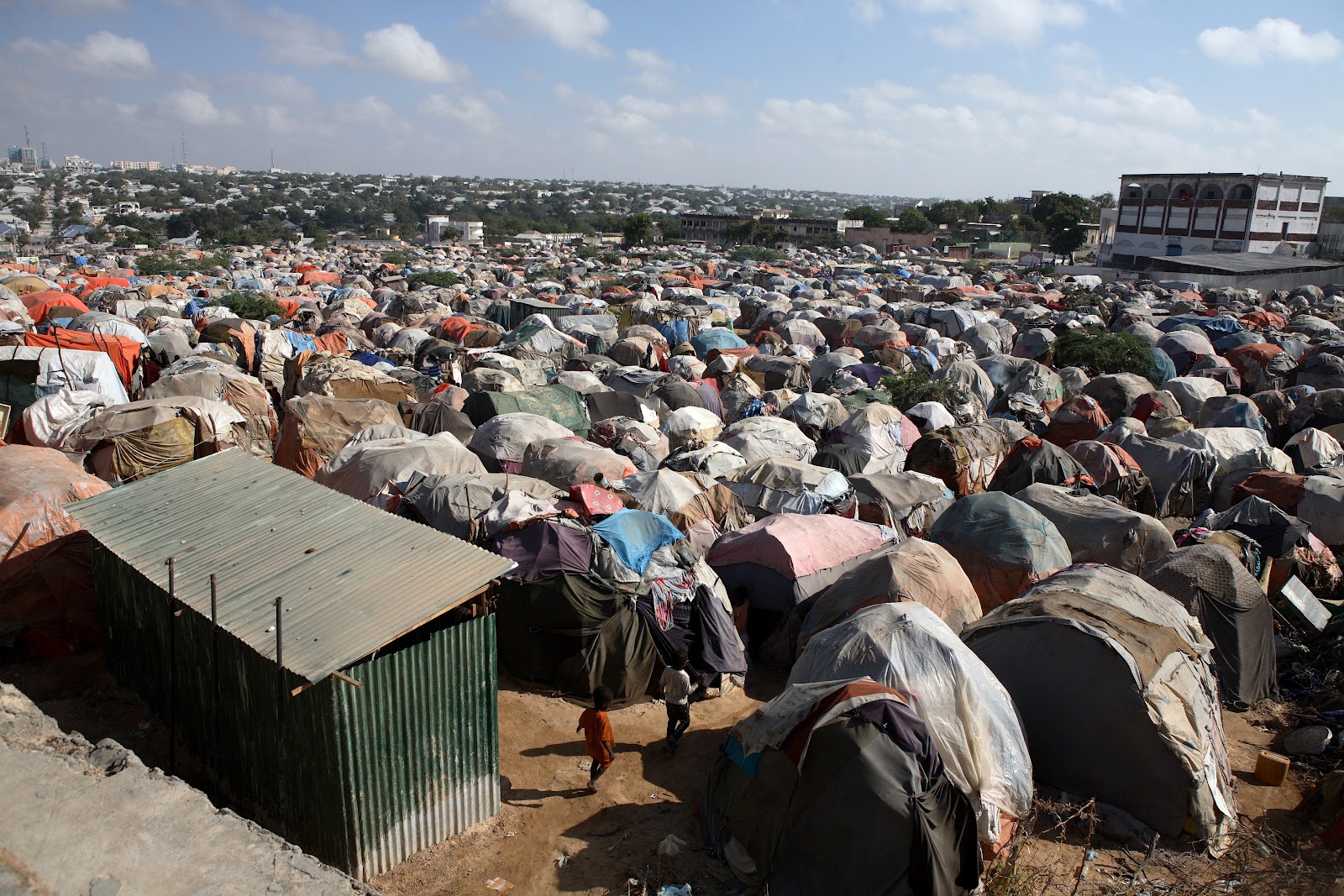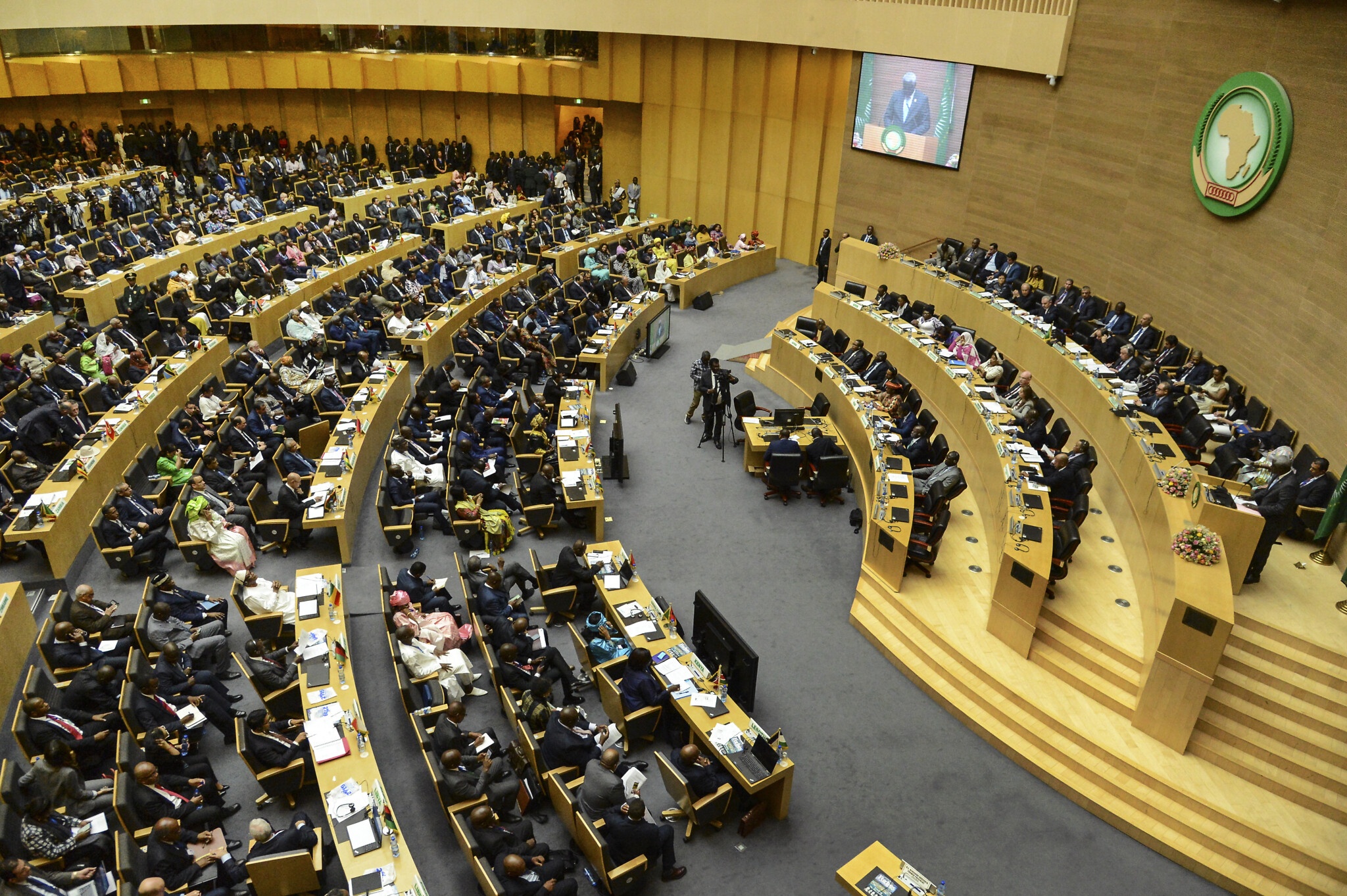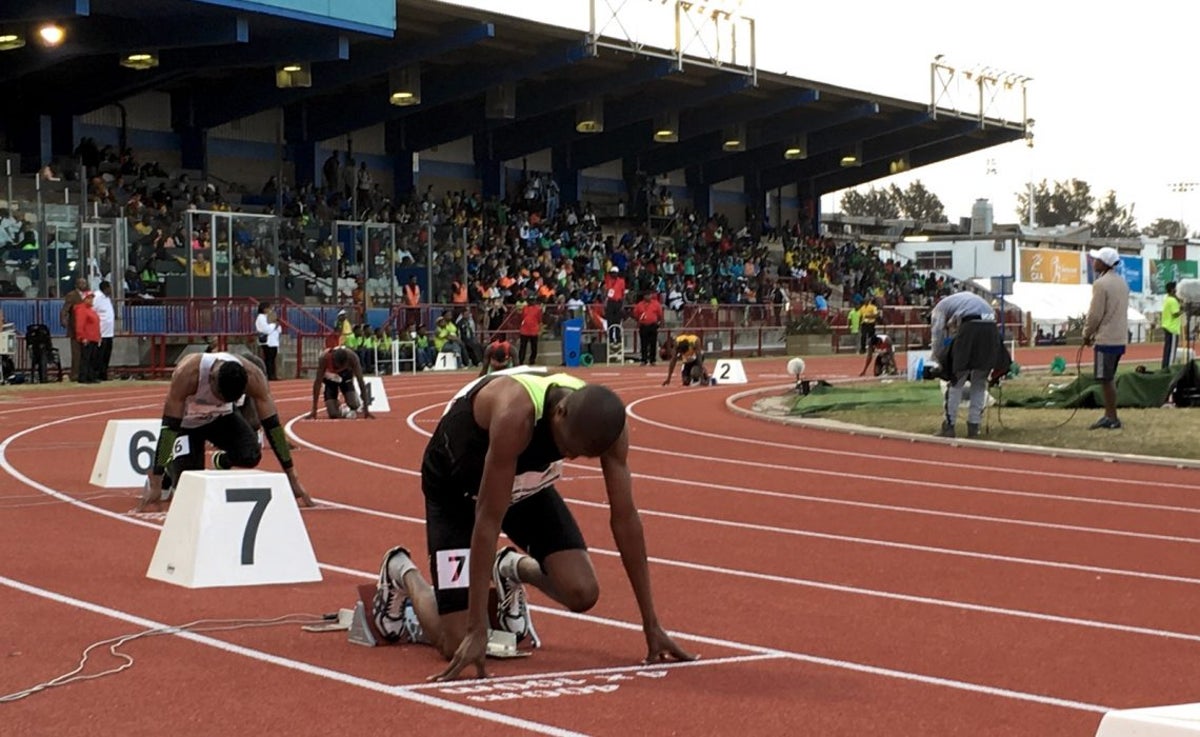BARCELONA — Conflict and disaster in Somalia have sparked massive internal displacement to make Mogadishu the most crowded city in Africa, leading to calls for emergency aid to the Somali capital to address land management and shelter issues.
Conflict, natural disasters, and substandard living conditions in the rural areas of the country have left 2.6 million people displaced within Somalia, a third of which — some 600,000 — have journeyed to the country’s capital and its informal camps, according to a recent report by the Internal Displacement Monitoring Centre.
However, the camps aren’t proving to be a final resting point. Issues with land ownership mean that those seeking aid and sanctuary can be evicted at any time and secondarily displaced.
The ‘Gatekeepers’ to providing aid in Somalia
A class of self-appointed IDP camp managers wield enormous control over how aid is distributed in Somalia. Humanitarians have developed several strategies to ensure access and transparency, but the problem looks only set to grow.
“The problem is that there is almost no land tenure security in Mogadishu so people come to these informal settlements that are usually set up on private land and there are so-called gatekeepers, managers of the settlements, and IDPs pay rent to them,” explained Ivana Hajzmanova, IDMC monitoring expert and lead researcher on the report.
However, this land can also be sold, and with no formal rental agreement those in the shelters are forced to move on without warning.
“[IDPs] don’t have proper documentation to prove they own some of the houses they’re staying in because they don’t have proper documentation for the land on which they’ve constructed those makeshift shelters,” said Evelyn Aero, regional adviser at the Norwegian Refugee Council, which works to improve food security, livelihoods, water, sanitation, shelter, education, and legal assistance in the country. Aside from a lack of security, those who have fled to the urban areas also face specific vulnerabilities such as contaminated water, sanitation conditions, and food insecurity, she added.
Forced eviction threatens to exacerbate those vulnerabilities — about 1.2 million children under 5 are projected to be malnourished in Somalia. The number of individuals affected by forced evictions in the country has increased from 200,000 in 2017 to over 204,000 between just January and July of this year, the majority taking place in Mogadishu.
The U.N. humanitarian aid appeal for Somalia for 2019 is set at $1.5 billion and Aero urged donors to address land tenure as well as food, water, and sanitation issues when scaling up funding to respond to the crisis.
“There needs to be joint efforts to addressing this situation but, specifically looking at the international donor community, as they scale funding to respond to the crisis in Somalia they need to take into consideration issues around urban planning and land management including shelter when they look at life-saving aid,” she said.
Hajzmanova said other solutions included the aid community helping IDPs obtain personal documents, providing legal assistance, and establishing alternative and more formal IDP camps in Mogadishu. However, Hajzmanova said there is a reluctance to invest in camps: “When eviction happens all the services are destroyed. It’s really hard to invest in something you don’t know how long will last.”
Looking ahead to the coming year, Hajzmanova is not hopeful that Mogadishu will become any less crowded or that the situation will improve for the current IDPs, given the drivers of displacement still persist and the humanitarian presence is concentrated in the capital.
“Humanitarian assistance outside the city is limited because it’s a very insecure area, and it’s not safe to be in the countryside,” she said, adding that further investment in services in the rural areas was needed to prevent further displacement.
“My advice would be around peacebuilding and conflict resolution because this is the very first step that needs to be taken in order to resolve all these other problems.”
Source: Devex
*The views of the above article are those of the author and do not necessarily reflect the views of Africa Speaks 4 Africa or its editorial team.




